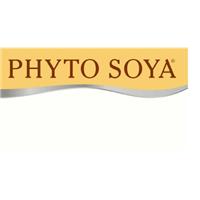London: The Safety of Soya Leading health charity the Vegetarian & Vegan Foundation (VVF) has created a new nutritional fact sheet “The Safety of Soya”.
The fact sheet reviews the latest science on soya and is essential reading for vegetarians, vegans and meat- eaters alike. VVF give you the facts on the wealth of health benefits and discuss the supposed risks of the humble soya bean.
VVF senior health campaigner and fact sheet author Dr Justine Butler says: “Soya is an excellent source of nutrients and can protect against heart disease, certain cancers and may reduce the risk of osteoporosis and menopausal symptoms; it might even help boost brain power. However, not all the reports on soya are favourable; the health benefits have been questioned by some while others have gone even further, launching a vigorous anti-soya crusade. The result is confusion – people don’t know who to believe. VVF has looked at the research in its entirety and sets the record straight in this timely fact sheet”.
“The Safety of Soya” Dr Butler says “explains how soya foods are a good source of protein, good fats including omega-3s, antioxidants, B vitamins, iron and are cholesterol-free. Calcium- and B12-fortified soya products provide a valuable source of these important nutrients. The new fact sheet explains how soya lowers cholesterol and so protects against heart disease. It describes how soya has been shown to improve bone health and reduce menopausal hot flushes”.
In answer to the soya detractors Dr Butler argues that “Millions of people have been safely consuming soya foods for thousands of years. In fact, millions of infants have been raised on soya-based infant formulas in the UK and US, many of whom are now well into their late 30s and early 40s. The absence of any reported ill effects on millions of babies would suggest there are no adverse effects, either biological or clinical.”
Dr Butler warns “Much of the concern is based on the presence of natural substances found in soya called phytoestrogens (plant hormones that act like oestrogen but are much weaker). VVF is far more concerned about the actual oestrogen content of cow’s milk and dairy products. Cow’s milk contains over 35 different hormones and 11 growth factors, several of which have been linked to cancer. Considering the main complaint about soya is that it contains phytoestrogens, many thousand times weaker than animal oestrogens, it begs the
question: what is the real motivation behind the anti-soya crusade?”
Decide for yourself by reading The Safety of Soya available for 40p including p&p from Vegetarian & Vegan Foundation, 8 York Court, Wilder Street, Bristol,
BS2 8QH. Tel: + 44(0)117 970 5190 9am- 6pm. Email info@vegetarian.org.uk or visit our website at < ahref="http://www.vegetarian.org.uk"www.vegetarian.org.uk
What is the VVF?
The Vegetarian & Vegan Foundation (VVF) is a charity established to monitor and interpret the increasing amount of scientific research linking diet to health.
VVF communicates this information to the public, health professionals, schools and food manufacturers and provides accurate information on which to make informed choices. It is a vital – and almost solitary – source of accurate and unbiased information and advice on diet and health and is free from any commercial or vested interests.


